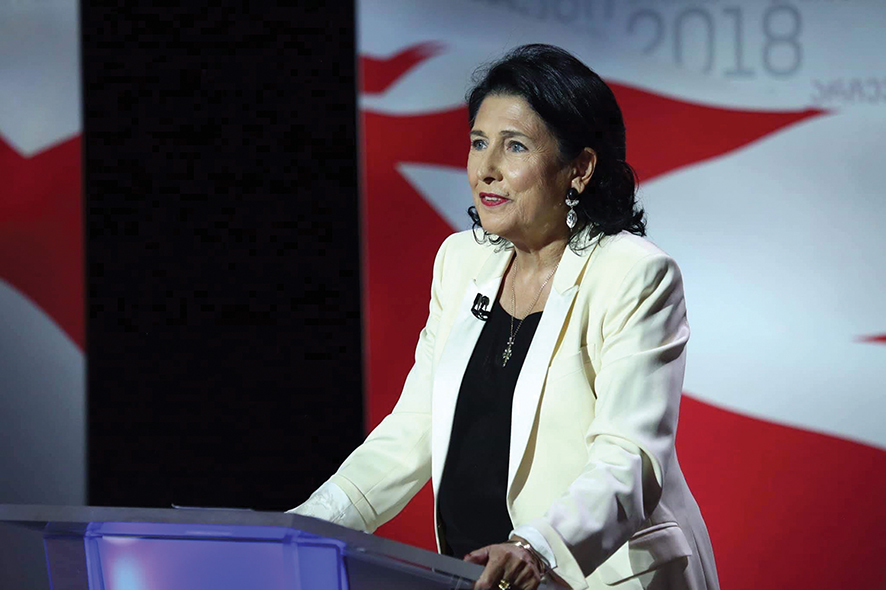Like I was looking into a crystal ball, I knew the republic would be in trouble when it shifted from presidential to parliamentary status a little over 10 years ago. Georgia is closer to Europe both territorially and spiritually than to the United States, but the American model of state structure, including one court with two functions, a president as the chief executive, and the legislature with firmly set-in checks-and-balances, would have been the most optimal form of governing the Georgian nation.
I apologetically consider the movement to parliamentary status one of the most vivid examples of our political mismanagement, because while attempting to emulate European political subtlety is an extremely agreeable thing to do, it came too early for Sakartvelo. This political culture needs far more maturation before it becomes fit enough to turn Georgia into a Euro-style game player. The American way of politicking is just as fine as the European, and exactly as hard to emulate, but I think it could still work better in this country. What we need here is a strong leader’s iron gloves, checked and balanced by means of fair and equal division of power, just as it is in the States. Moreover, on a legislative level, even the American-type bipartisan political system could have been much more practicable in Georgia than the multi-party jambalaya we are overwhelmed with right now; the best remedy to abridge the political talk and augment public business of the day.

The current way of doing politics here needs a lot of repairs and renovations, otherwise, the overloaded and overly sharpened political agenda might totally displace our economic schedule and have a pernicious effect on our traditional but still amazingly functional culture.
Take for instance the headaches the current Georgian government has had in the last decade because of the two presidents we’ve had in Georgia’s time as a parliamentary republic – formal heads of state who have no political or legal power, just formal protocol obligations to carry out at their own leisure. These non-functional presidents were elected with the tremendous support of the ruling party. Not even in the wildest imagination would they have been granted even a single electoral vote had they been running on their own. It was only thanks to the recommendations and endorsements of the mentioned party that they found themselves comfortably ensconced on their presidential thrones with a happy chance to occupy the most convenient, relaxed and entertaining political post in the country. And what happened in reality? The moment they had safely filled in the invidious sinecure at the top, they both wanted to feel like real presidents and claim actual power, forgetting that they would never have been chosen by the people if not for the ruling party’s unequivocal support to have them elected.
On the other hand, even an impotent presidency has a chance to do something good for the nation, like defusing the ongoing tension and polarization that is killing our chance to work productively. Conversely, in both cases, the contradiction within the nation’s everyday life hit a high, seeing the presidents creating more uninvited conflict in the political field, turning them into the worst adversaries of the government.
Now the question is how beneficial or detrimental that kind of presidential behavior is for the nation, not just for the administration, because the discomfort created by the ceremonial presidents for the government is not as important as a good job done for the motherland. Any government of any country in the world wants a cooperating formal head of state, because otherwise the government becomes distracted from their main business and loses time and energy which should be spent on taking care of the nation. Any government in the world could be criticized for the work they are doing, but the conflict with even ceremonial presidents adds to the government’s pain in the neck so badly that correction of the harmed state of affairs often becomes impossible. I have always wondered if the state security service creates a modeled profile of potential presidents in advance, just before they are given the job they so desperately aspire to.
Op-Ed by Nugzar B. Ruhadze













